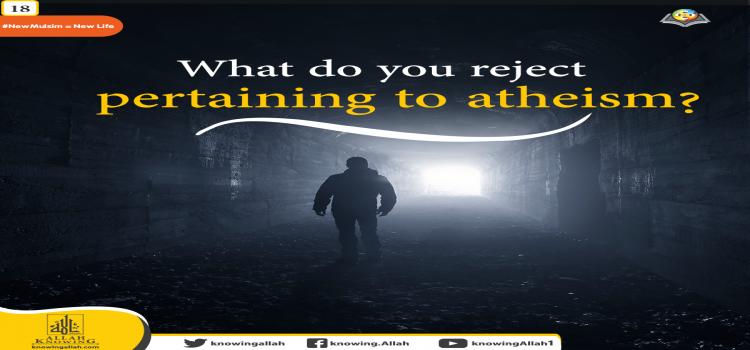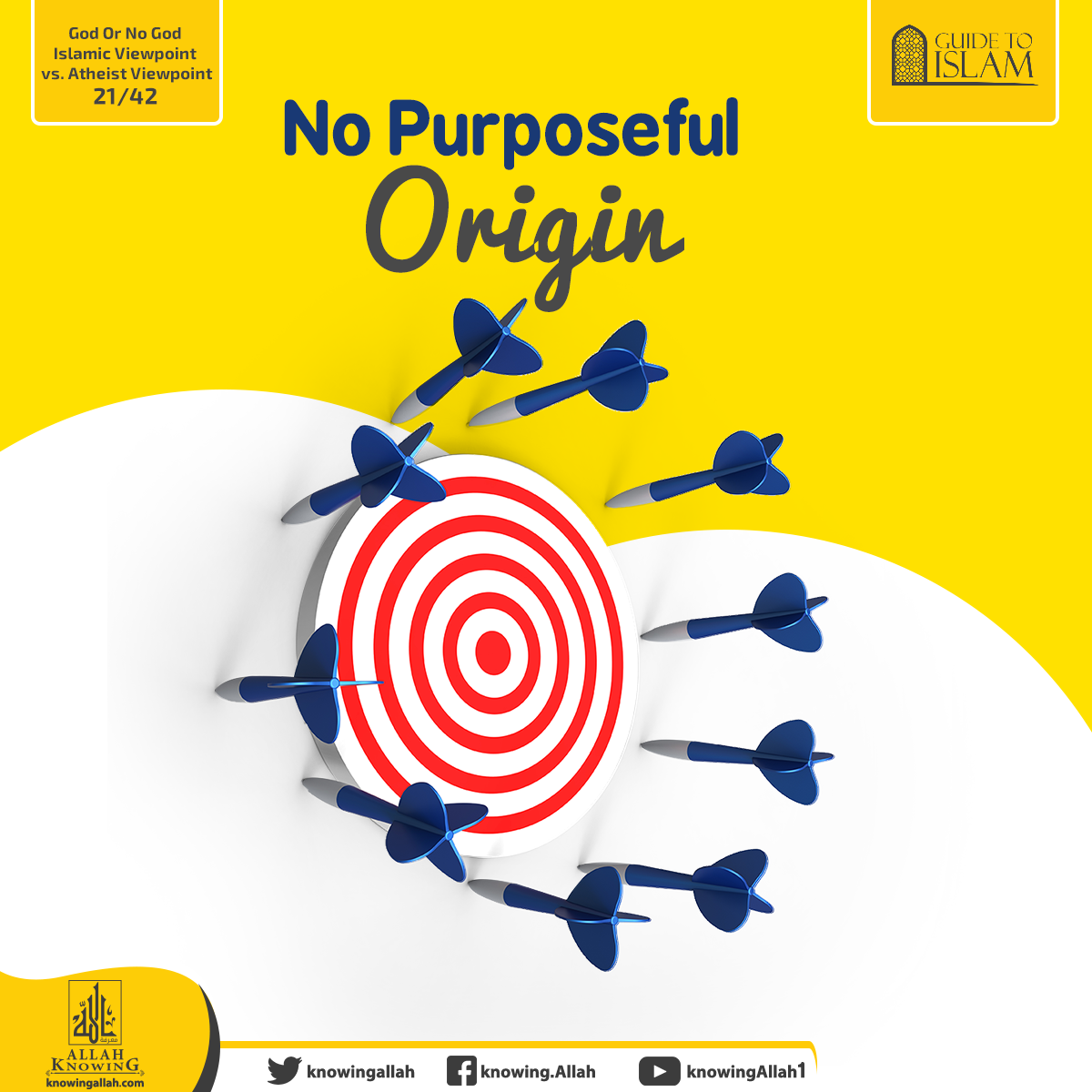Life Without God: The Implications of Atheism (Part 4 of 5)
No eternal and meaningful happiness
"And a happy future belongs to those who are mindful of Him."
(Quran 7:128)
The pursuit of happiness is an essential part of our human nature. All of us want to be happy—even when sometimes we cannot pinpoint exactly what ‘happiness’ is. This is why if you were to ask the average person why they want to get a good job, they would probably reply, "To earn enough to live comfortably". However, if you questioned them further and asked why they want to live comfortably they would more than likely say, "Because I want to be happy". If you then asked them, "Why do you want to be happy?" They would be stuck for an answer, because happiness is ultimately an end, not a means. It is the final destination, not necessarily the journey. We all want to be happy, and there is no reason why we want to be happy other than happiness itself. This is why we endlessly seek ways to help us achieve that final happy state.
The journey that people seek varies from one person to the next. Some dedicate years to adding qualifications and career credentials to their names. Others work tirelessly in gyms to achieve a perfect figure. Those who desire the love of family often end up sacrificing their lives to the care of their spouse and children, while some party their weekends away with friends, seeking a release from the relentless cycle of work. The list is endless. It begs the question: What is true, meaningful happiness?
To help answer this question, imagine the following scenario: While reading this, you are sedated against your will. Suddenly you wake up and find yourself on a plane. You’re in first class. The food is heavenly. The seat is a flatbed, designed for a luxurious, comfortable experience. The entertainment is limitless. The service is out of this world. You start to use all of the excellent facilities. Time starts to pass. Now think for a moment, and ask yourself the question: Would I be happy?
How could you be? You would need some questions answered first. Who sedated you? How did you get on the plane? What is the purpose of the journey? Where are you heading? If these questions remained unanswered, how could you be happy? Even if you started to enjoy all of the luxuries at your disposal, you would never achieve true, meaningful happiness. Would a frothy Belgian chocolate mousse on your dessert tray be enough to drown out the questions? It would be a delusion, a temporary, fake type of happiness, only achieved by deliberately ignoring these critical questions.
Now apply this to your life and ask yourself, am I happy? Our coming into existence is no different from being sedated and thrown on a plane. We never chose our birth, our parents or where we come from. Yet some of us do not ask the questions or search for the answers that will help us achieve our ultimate goal of happiness.
Where does true, meaningful happiness lie? Inevitably, if we reflect on the previous example, happiness really lies in answering key questions about our existence. These include: What is the purpose of life? Where am I heading after my death? In this light, our happiness lies in our inwardness, in knowing who we are, and finding the answers to these critical questions. If we claim to be happy but have not asked these questions or found any answers, then our happy state is not very meaningful. It would be like a drunk person who seems to be happy when he temporarily forgets life’s worries.
Unlike animals, we cannot be content by reacting to our instincts. Obeying our hormones and mere physical needs will not answer these questions and bring happiness. To understand why, reflect on another example: Imagine you were one of 50 human beings locked in a small room with no exit. There are only 10 loaves of bread, and there is no more food for another 100 days. What do you all do? If you follow your animalistic instincts, there will be blood. But if you try to answer the question, how can we all survive? it is likely that you will, because you will devise ways to do so.
Extend this example to your life. Your life has many more variables, which can result in almost an infinite number of outcomes. Yet some of us just follow our carnal needs. Our jobs may require Ph.Ds. or other qualifications, and we may wine and dine with our partners, but all of that is still reduced to the mere instincts of survival and procreation. Meaningful happiness cannot be achieved unless we find out who we really are and search for answers to life’s critical questions.
However, under naturalism these questions do not have any real answers., this is why naturalism can never lead to a meaningful happy state. Why are we here? No reason at all. Where are we going? Nowhere. We will just face death. We all need to answer the fundamental question of why we are here. In Islam, the answer is simple yet profound. We are here to worship God.
But worship in Islam is quite different from the common understanding of the word. Worship can be shown in every act that we do. The way we talk to each other and the small acts of kindness we do each day. If we focus on pleasing God by our actions, then our actions become acts of worship.
Worship is not merely limited to directing our acts of worship to God alone, like the spiritual acts of prayer and fasting. Worshipping God also means loving, obeying and knowing Him the most. Worshipping God is the ultimate purpose of our existence; it frees us from the ‘slavery’ to others and society. God, in the Qur’an, presents us with a powerful example:
"God puts forward this illustration: can a man who has for his masters several partners at odds with each other be considered equal to a man devoted wholly to one master? All praise belongs to God, though most of them do not know."
(Quran 39:29)



